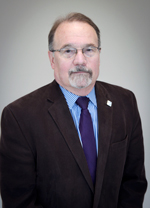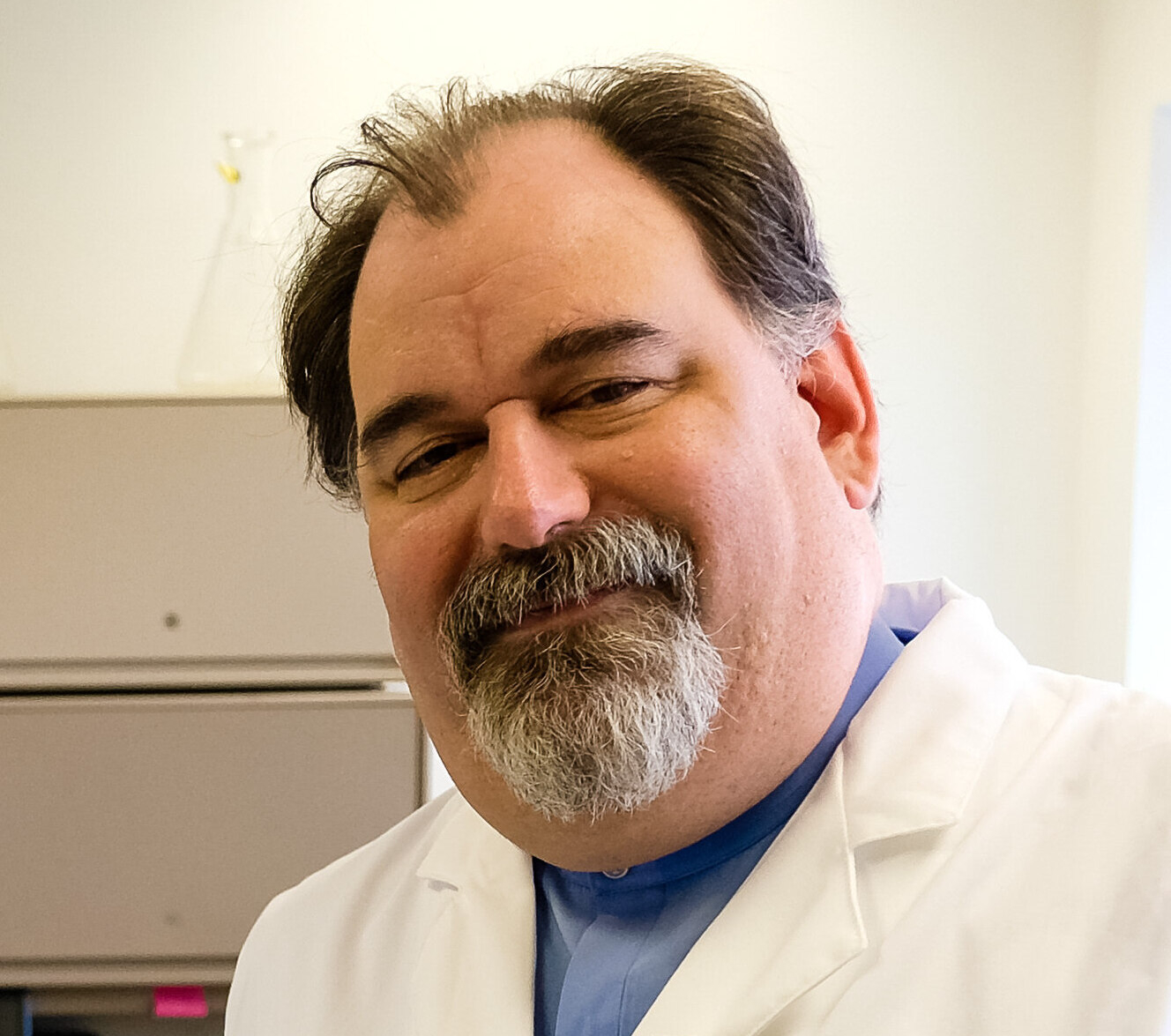
OUWB faculty, students, and staff have authored nearly 40 published works connected to the COVID-19 pandemic — with no signs of slowing down.
According to the Oakland University William Beaumont School of Medicine Medical Library, there have been 36 papers published with connections to OUWB since the start of the pandemic. (The full list can be found here.)
Papers have appeared in publications such as Internal and Emergency Medicine, American Journal of Gastroenterology, Front Public Health, Annals of Medicine, Medical Science Educator, and more.
“OUWB’s faculty, students, and staff need to be applauded and recognized for addressing the pandemic as quickly as they did,” said Richard Kennedy, Ph.D., associate dean of research and professor, Department of Foundational Medical Studies.
“They worked hard to disseminate knowledge that was peer-reviewed and should help advance diagnosis, treatment, and long-term outcomes for COVID-19 patients,” he added.
Kennedy said such work has proven especially important since prior to 2020, “we knew nothing about” the disease behind the pandemic and a steep learning curve was borne out of necessity.
“It was amazing to watch everyone make this a priority — as we should,” said Kennedy. “But this is exactly what we would expect from OUWB and Beaumont with both institutions being dedicated to the communities and populations we serve.”
‘A good representation of everyone working together’
The connections to OUWB vary in the published works. Some have one OUWB-related author while others feature work from a cohort of OUWB students, faculty, staff, and alumni, all working together.
The relatively common theme among works done to this point centers on initial diagnosis and treatment of patients with COVID-19 — and much of the work has had immediate application in patient care.
Kennedy |
“For example, we didn’t know in the beginning that — sadly — this disease is far worse for some or our underrepresented minority populations than it is for others,” he said. “Also, we didn’t know that people with some co-morbid diseases like diabetes were particularly more sensitive to adverse outcomes or to the severity of the disease.”
Kennedy noted that work done by researchers with OUWB connections is especially useful given the close relationship between OUWB and Beaumont Health and the amount of aggregate data available.
“Beaumont has treated a large number of patients and that’s made our data particularly robust,” he said.
One example is “External validation of a clinical risk score to predict hospital admission and in-hospital mortality in COVID-19 patients.” The research looked at aggregate data from about 2,000 patients.
Published in Annals of Medicine, the lead author was Alexandra Halalau, M.D., associate professor, Department of Internal Medicine. Other OUWB-related authors for the study were: Patrick Karabon, biostatistician; Nikhil Mankuzhy, a fourth-year medical student; John Tu, M.D., assistant professor, Department of Internal Medicine; and Christopher Carpenter, M.D., chair, Department of Internal Medicine.
Karabon said he viewed the work as critical.
“Everything that can be done with research we adapted to COVID,” said Karabon. “It really was an all-hands-on-deck approach…it was natural for us to shift gears and work on these projects.”
Kennedy said published works like the one involving Karabon showcase how the OUWB/Beaumont community functions so well together.
“We had to do research probably faster and more efficiently than we’ve ever done it before,” he said. “We pulled data, we aggregated data, we validated data, and we made it available to investigators in record time.”
‘Opened my eyes’
Fourth-year OUWB medical student Aimen Vanood is an author on two of the published works and said she felt a calling to get involved.
One of the papers Vanood co-authored was "Older age and comorbidity are independent mortality predictors in a large cohort of 1,305 COVID-19 patients in Michigan, United States.” It was published in Journal of Internal Medicine.
The other paper was "Emergency center curbside screening during the COVID-19 pandemic: Retrospective cohort study," which was published in JMIR Public Health and Surveillance.
Vanood said she viewed the COVID-19-related research as part of her duty as a future physician.
“As Beaumont was hit very heavily by the pandemic, this put us in a unique position to have a very large volume of data at our fingertips,” she said. “I felt it was my duty as a member of the medical community to collect and write up this data, so that we could share our findings with the rest of the world and bring about a better understanding of this novel disease.”
Vanood said the research helped her deal with a sense of guilt she felt after medical students were taken out of clerkships in March as a result of the pandemic.
“Helping with this research was one of the few things I could contribute to while being mindful of COVID restrictions, and that is why I got involved,” she said.
The research, she said, “opened my eyes to how dangerous this virus is.”
“I get tired of the social distancing restrictions and stay-at-home orders, but in those times, I think back to all the charts I read and am reminded that COVID-19 is a real threat,” she said. “I must be responsible as a member of the medical community.”
Kennedy gave credit to the students like Vanood who stepped up to participate in the COVID-19-related research.
“It’s reflective of the positive attitude of our students,” he said. “With regard to this disease, they saw a gap in knowledge and the outcomes — the morbidity and mortality — and just like the faculty, made it a priority to get as much data out there as possible.”
Looking ahead
For all the work that’s been done with regard to COVID-19, there is plenty more to do.
Sims |
Matt Sims, M.D., director of infectious diseases for Beaumont Health and professor, Department of Internal Medicine, put the importance of COVID research into perspective during a recent virtual Health Care Leadership Summit hosted by Crain’s Detroit Business.
“We’re not going to get out of this without research,” he said. “We can try everything we want but if we don’t do it in an orderly scientific manner, we’re not going to get anywhere…whether that’s a full, randomized clinical trial or whether that’s collecting all the data in the best possible way we can.”
Kennedy says he’s optimistic about the prospects of a vaccine being developed soon for COVID-19, though he doesn’t expect research related to the pandemic to slow. He added that he’s aware of many COVID-related research projects with OUWB connections currently underway and yet to be published.
“I think COVID-19 has put the research world on alert that these very contagious, viral diseases can pop up again,” he said. “I would expect the next wave of research to be more focused on what’s next — is there a way to predict the next pandemic, or is there a better approach that should be used next time?”
For more information, contact Andrew Dietderich, marketing writer, OUWB, at [email protected].
To request an interview, visit the OUWB Communications & Marketing webpage.
NOTICE: Except where otherwise noted, all articles are published under a Creative Commons Attribution 3.0 license. You are free to copy, distribute, adapt, transmit, or make commercial use of this work as long as you attribute Oakland University William Beaumont School of Medicine as the original creator and include a link to this article.



